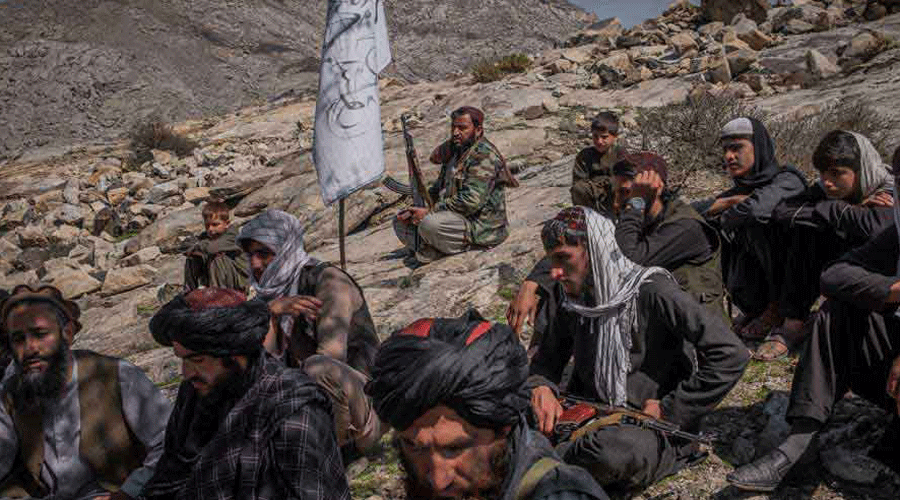A high school student in Kabul, Afghanistan’s war-scarred capital, worries that she now will not be allowed to graduate.
The girl, Wahida Sadeqi, 17, like many Afghan civilians in the wake of the US troop withdrawal and ahead of a Taliban victory, keeps asking the same question: What will happen to me?
The American withdrawal, which effectively ends the longest war on foreign soil in US history, is also likely to be the start of another difficult chapter for Afghanistan’s people.
“I am so worried about my future. It seems so murky. If the Taliban take over, I lose my identity,” said Sadeqi, an 11th grader at Pardis High School in Kabul. “It is about my existence. It is not about their withdrawal. I was born in 2004, and I have no idea what the Taliban did to women, but I know women were banned from everything.”
Uncertainty hangs over virtually every facet of life in Afghanistan. It is unclear what the future holds and whether the fighting will ever stop. For two decades, American leaders have pledged peace, prosperity, democracy, the end of terrorism and rights for women.
Few of those promises have materialised in vast areas of Afghanistan, but now even in the cities where real progress occurred, there is fear that everything will be lost when the Americans leave.
The Taliban, the extremist group that once controlled most of the country and continues to fight the government, insist that the elected President step down. Militias are increasing in prominence and power, and there is talk of a lengthy civil war.
Over two decades, the American mission evolved from hunting terrorists to helping the government build the institutions of a functioning government, dismantle the Taliban and empower women. But the US and Afghan militaries were never able to effectively destroy the Taliban, who sought refuge in Pakistan, allowing the insurgents to stage a comebac
The Taliban never recognised Afghanistan’s democratic government. And they appear closer than ever to achieving the goal of their insurgency: to return to power and establish a government based on their extremist view of Islam.
Women would be most at risk under Taliban rule. When the group controlled Afghanistan from 1996 to 2001, it barred women from taking most jobs or receiving educations and practically made them prisoners in their own homeshomes — though this was already custom for many women in rural parts of the country.
“It is too early to comment on the subject. We need to know much more,” Fatima Gailani, an Afghan government negotiator who is involved in the continuing peace talks with the Taliban, said in April.
“One thing is certain: It is about time that we learn how to rely on ourselves. Women of Afghanistan are totally different now. They are a force in our country — no one can deny them their rights or status.”
New York Times News Service










